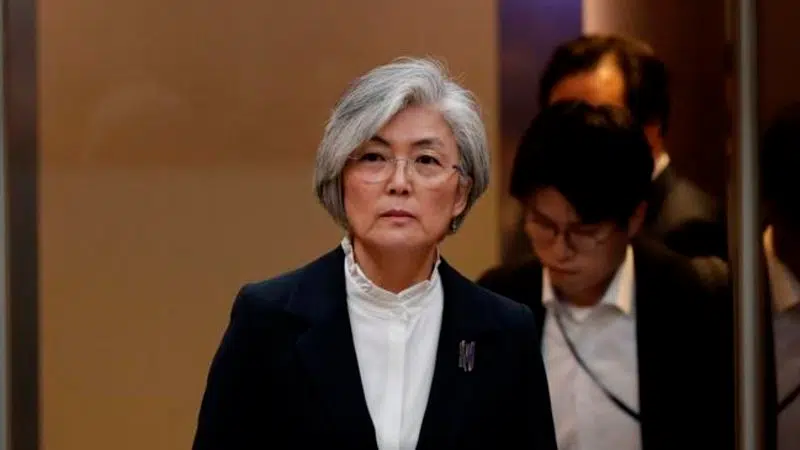
In reversal, Seoul to keep Japan military intelligence pact
SEOUL, Korea, Republic Of — In a major policy reversal, South Korea said Friday it has decided to continue a 2016 military intelligence-sharing agreement with Japan that it previously said it would terminate amid ongoing tensions over wartime history and trade.
The announcement, made just six hours before the agreement was to expire, followed a strong U.S. push to save the pact, which has been a major symbol of the countries’ three-way security co-operation in the face of North Korea’s nuclear threat and China’s growing influence.
The office of South Korean President Moon Jae-in said it decided to suspend the effect of the three months’ notice it gave in August to terminate the agreement after Tokyo agreed to reciprocal measures.
But Kim You-geun, deputy director of South Korea’s presidential national security office, said the move was based on the premise that it could end the arrangement at any time depending on how relations with Tokyo proceed.
